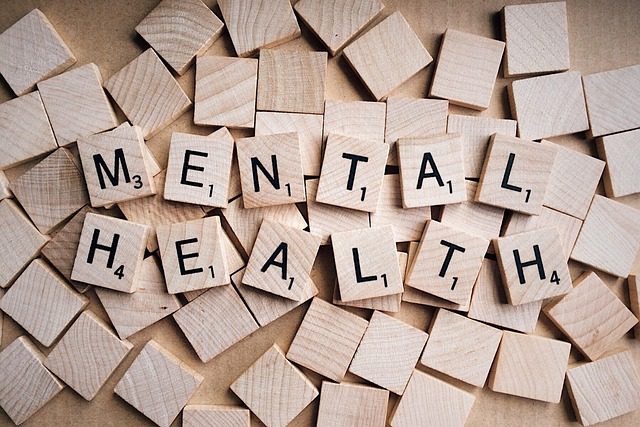Mental health is a crucial aspect of our overall well-being, yet it is often overlooked and misunderstood. With the rise of mental health disorders among teens today, it’s more important than ever to understand what mental health really means and how we can help those who are struggling. In this blog post, we’ll be discussing different types of mental health disorders, their causes and symptoms, as well as effective ways to treat them.
We’ll also delve into the world of online teen therapy – an increasingly popular option for those seeking support from the comfort of their own homes. So sit back, relax, and let’s dive into the fascinating topic of mental health!
What is Mental Health?
Mental health refers to the overall well-being of an individual’s emotional, psychological and social state. It is a crucial aspect of our lives that determines how we handle stress, make decisions, form relationships and cope with challenges. Good mental health means having the ability to adapt to change and live a fulfilling life.
However, mental health disorders can have a significant impact on one’s daily life as it affects their thoughts, feelings and behaviors. It is important to note that these disorders are not caused by personal weakness or character flaws but rather by biological factors such as genetics, brain chemistry or traumatic experiences.
There are various types of mental health disorders ranging from anxiety and depression to bipolar disorder and schizophrenia. Each has its unique set of symptoms which requires different approaches for diagnosis and treatment.
Understanding what mental health is can help individuals recognize when they need help in managing their emotions or behaviors. Seeking professional support through therapies like online teen therapy can greatly improve an individual’s mental well-being.
The Different Types of Mental Health Disorders
Mental health disorders affect millions of people worldwide, and they can be different for each individual. Here are some of the most common types of mental health disorders:
Anxiety Disorders: People with anxiety disorders experience excessive fear or worry that interferes with daily life. Generalized Anxiety Disorder (GAD) is a common type of anxiety disorder.
Mood Disorders: These conditions involve changes in mood such as depression, bipolar disorder, and seasonal affective disorder.
Eating Disorders: Eating disorders like anorexia nervosa, bulimia nervosa, and binge eating disorder often stem from underlying emotional issues.
Personality Disorders: Personality disorders are characterized by inflexible patterns of thought and behavior that cause significant distress to the person affected.
Psychotic Disorders: Psychotic disorders like schizophrenia involve a loss of touch with reality through delusions or hallucinations.
Substance Abuse Disorders: Substance abuse may lead to addiction which causes both physical and psychological harm to individuals.
It’s important to note that while these categories help us understand mental health conditions better; there is no one-size-fits-all diagnosis for any individual. If you think you might have a mental illness, it’s essential to seek help from a qualified medical professional who can provide support tailored directly to your needs.
The Causes of Mental Health Disorders
Mental health disorders can arise from various causes, including genetic, environmental and social factors. In some cases, a combination of these factors may contribute to the development of mental health issues.
One possible cause is genetics. Studies have shown that certain mental health disorders tend to run in families. For example, if one or both parents have a history of depression or anxiety disorder, their children may be more likely to develop these conditions as well.
Environmental factors such as trauma or abuse can also trigger mental health problems. Traumatic experiences like physical violence, sexual assault or even neglect can lead to post-traumatic stress disorder (PTSD) and other related disorders.
Social factors such as stress at work/school/family life/environmental changes can also contribute significantly to the onset of mental illness symptoms. Stressful environments and events like divorce/separation/bullying/promotion/layoffs/homelessness/poverty/abuse are some examples that could trigger it.
Substance abuse has been linked with many types of mental illnesses from depression/anxiety/addiction/suicidal ideations/personality changes/self-harm thoughts/hallucinations etc., especially among teens who struggle with addiction issues but would not consider an online teen therapy program until they reach rock bottom
The Symptoms of Mental Health Disorders
Symptoms of mental health disorders can vary depending on the type of disorder and the person experiencing it. However, there are some common symptoms that people with mental health disorders may experience.
One of the most common symptoms is changes in mood or behavior. This could include sudden mood swings, extreme emotions such as anger or sadness, or a lack of interest in activities they once enjoyed.
Another symptom could be changes in sleep patterns. People with mental health disorders may have trouble falling asleep or staying asleep, leading to fatigue and irritability during the day.
Physical symptoms such as headaches, stomachaches, and muscle tension can also be present in people with mental health disorders. These physical symptoms are often related to stress and anxiety.
People with certain types of mental health disorders may also experience hallucinations or delusions. These experiences can be frightening for both the person experiencing them and those around them.
Social withdrawal is another symptom that many people with mental health disorders experience. They may avoid social situations entirely due to feelings of fear, embarrassment, or shame about their condition.
It’s important to remember that everyone experiences mental illness differently and these symptoms should not be used as diagnostic criteria alone but rather as indicators for seeking professional help if needed.
How to Treat Mental Health Disorders
Treating mental health disorders is a complex and individualized process that requires the collaboration of mental health professionals, medical providers, and patients themselves. Treatment options will vary depending on the type of disorder, severity of symptoms, and personal preferences.
One common form of treatment for mental health disorders is therapy. This can include cognitive-behavioral therapy (CBT), dialectical behavior therapy (DBT), or talk therapy with a licensed counselor or therapist. Therapy provides a safe space to discuss feelings and thoughts with someone who can help develop coping strategies for managing symptoms.
Medications are often prescribed in combination with therapy to alleviate severe symptoms such as depression or anxiety. Antidepressants and anti-anxiety medications can be effective when used under the supervision of a doctor.
Lifestyle changes can also play an important role in treating mental illness. Regular exercise has been shown to reduce stress levels and improve mood. A healthy diet rich in fruits, vegetables, lean proteins, and whole grains can also support overall well-being.
It’s important to seek professional help if you believe you may be struggling with a mental health disorder. With proper care from qualified professionals and personalized treatment plans tailored to individual needs, recovery from these conditions is possible.
Conclusion
Mental health is an essential aspect of our overall wellbeing. It affects how we think, feel and act in our daily lives. Mental health disorders are common and can affect anyone regardless of age or gender. However, with proper treatment, recovery is possible.
Online teen therapy provides a convenient and accessible way for teenagers to access help for their mental health issues. With the rise of technology, it has become easier than ever to connect with licensed therapists remotely through video calls or messaging platforms.
It’s important for parents and caregivers to pay attention to the mental health needs of their children. Early recognition and intervention can prevent long-term negative effects on one’s emotional wellbeing.
If you’re a teenager struggling with your mental health or know someone who is, don’t be afraid to seek help from a qualified professional. Online teen therapy may be just what you need to start feeling better and living your best life.



































